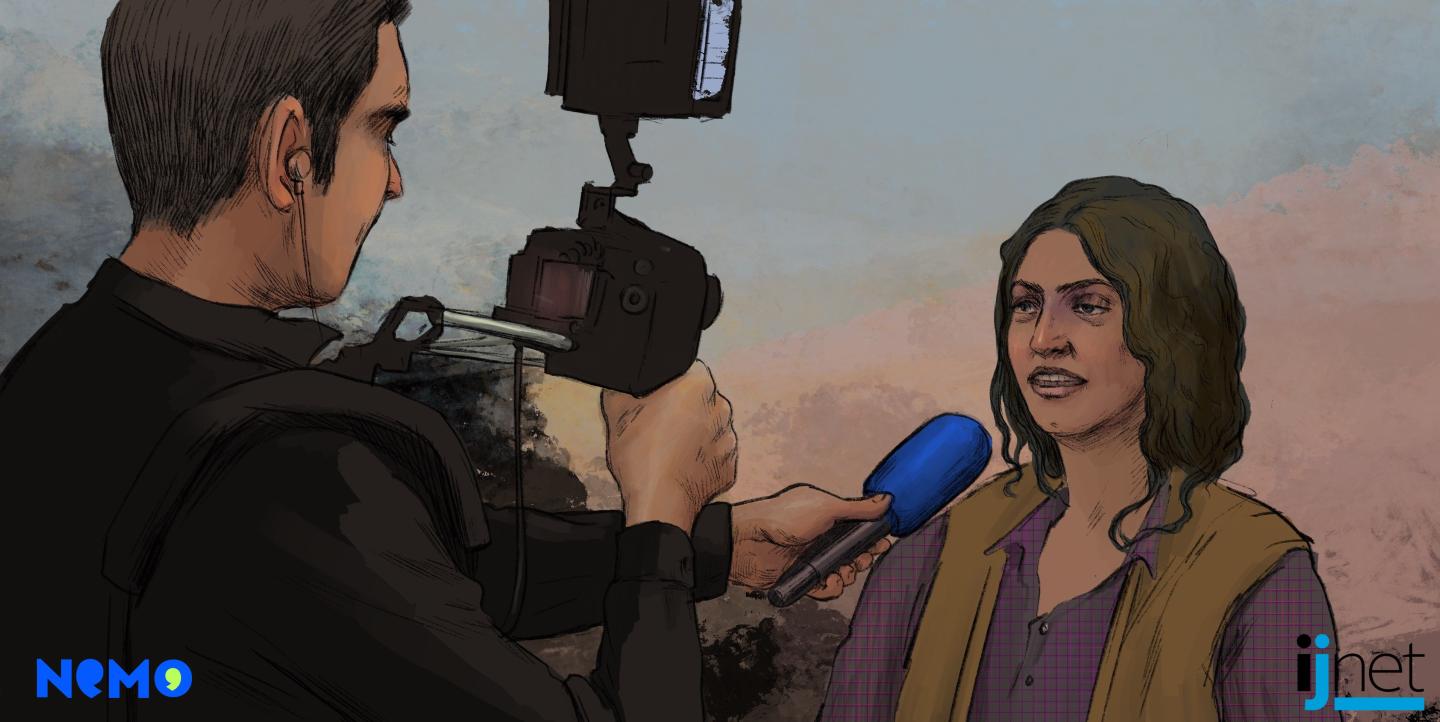This story was originally published as a resource in our Exiled Media Toolkit, produced in partnership with the Network of Exiled Media Outlets (NEMO), and with the generous support of the Joyce Barnathan Emergency Fund for Journalists.
Whether your newsroom is forced into exile or you’re launching a new initiative from scratch outside the country you’re reporting on, establishing and running an exiled media outlet can be a daunting task.
Standing between you and your team’s goal to cover what’s going on inside a country is your new host country’s system – one that you may not know very well, is filled with bureaucratic red tape, and most likely operates in another language. This makes explaining your situation and finding solutions even more difficult.
This is why we at IJNet and the Network of Exiled Media Organizations (NEMO) have created our “Exiled Media Toolkit.” With it, we want to help media workers early in their exiled outlet’s story get a head start and ease the process of setting up an outlet as much as possible.
This resource, “Exiled Media 101,” will serve as a checklist for those looking for where to start, with tips and tricks covering the basics of properly and efficiently establishing a media outlet in exile, specifically:
- Setting up a legal entity
- Running the entity you just set up
- Security considerations
- Tools to take advantage of
Setting up a legal entity
It will be necessary to set up a legal entity at some point. When this time comes, it’s important to gather enough information to make an informed, deliberate decision.
The types of organizations that can be founded will vary from country to country, but they usually are either nonprofits, for-profits or a hybrid between the two.
The best advice is: Talk to a lawyer, ideally a tax lawyer. They will be able to answer your questions about the intricate differences between different types of organizations, as well as the pros and cons of each. With this information, you’ll be able to make a decision based on what best fits your future plans. If you’re planning to fund a lot of your work with grants, for example, going the nonprofit route is most likely best, but every situation and business model is different.
As a general note, you’ll want to make sure you have qualified advice from lawyers, tax advisors and other experts, and a sound financial setup before establishing a legal entity. If you have the means, or there is support available for it, take advantage of external help. Outside assistance in setting up your finances and policies can help your organization function well and avoid tax problems later.
If you plan on attracting funding, the more solid your financial structures are, the better your chances will be of receiving grants.
Running the entity you just set up
Now that you’re set up, you’re going to need people who can run the organization. Local contacts in your host country who can work in administrative positions will help everything run more smoothly.
There will inevitably be mail from the bank or tax authorities, or something will get lost at a municipal office. Having someone who knows the local system and language to be on top of this will save you time, stress and money.
If you can, don’t try to do everything. Splitting editorial and administrative work in one position is not sustainable. Ideally, find people who have experience in project management or finances who can join your team and handle this type of work.
Security considerations
Security can never be an afterthought. You and everyone you’re working with needs to take digital and physical security seriously. Lapses not only put individuals themselves in danger, but everyone around them – including your audience!
Adopt guidelines and be very clear with everyone working with you – if there is one topic you have to be strict on, it’s security. Fortunately, you don’t have to reinvent the wheel. Use what’s out there, like these resources from ACOS Alliance and the Rory Peck Trust.
Have everyone regularly take this quiz by Jigsaw, which teaches you how to detect phishing emails. Reach out to organizations that advocate for journalists like Reporters without Borders and Committee to Protect Journalists in advance, and get to know them so they can know you. If you need support in the future in an emergency, having pre-vetted yourself with these organizations will help move things more quickly.
Tools to take advantage of (for nonprofits)
Being based in exile often leads to higher operating costs. But there is some good news! If you register as a nonprofit, be sure to look into nonprofit discounts for everything you use. Never hesitate to ask any service provider you use for such a discount. Don’t miss out on deals, such as discounts or even free use of Canva, Google Workspace, Paypal, and Slack. Check out TechSoup for more software discounts for nonprofits.
Now you’re set up, you have an admin team at work, the tools to keep your team as safe as possible, and you’re chatting on Slack for free. It’s time to dive deeper into further administrative, business and, most importantly, editorial topics that will make working from exile easier for you and your team.
Matthew Kasper is co-director of Vereinigung für die Demokratie (VD), the Berlin-based NGO that manages Meydan TV, Azerbaijan’s largest online and independent news outlet, and ROMB, an independent Russian media outlet inhabiting the intersection of journalism and documentary filmmaking.

